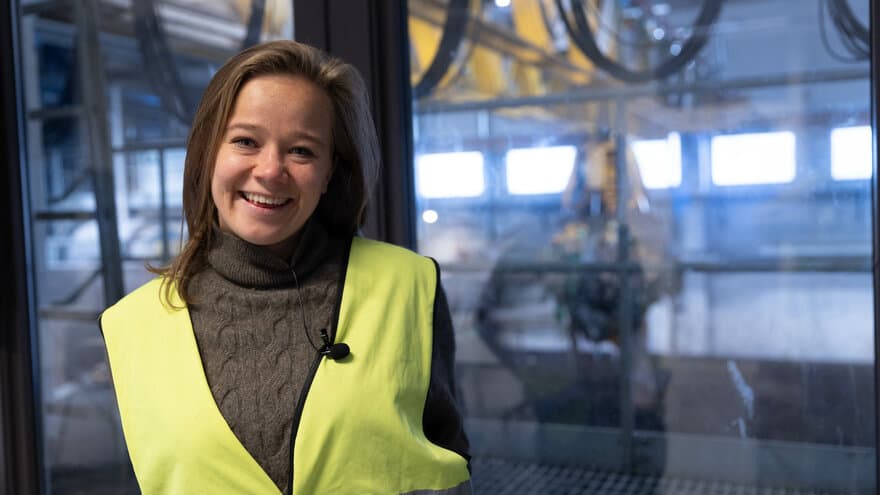Sustainable societies, circular economy, and green business development. These were all trigger words for Amalie Lundervold when she decided to study bioeconomy. In addition to a master's degree, she has made lifelong friends and secured a relevant job.
In the spring of 2023, she became part of the first class to graduate with a master's degree in bioeconomy from NMBU. The friendship among her classmates was so profound that a substantial number of them chose to move in together in flats strategically scattered throughout the same district in Oslo.
Continued closed contact with classmates
"Here you find the entire bioeconomy community in Norway," Amalie laughs as she opens the door to the apartment.
In a classic old Oslo apartment with high ceilings, she lives with four other classmates.
"I was aware that the student community at NMBU had a good reputation, but I didn't expect us to become so close-knit that we chose to become flatmates afterward," Amalie says with a smile.
The entire class secured relevant jobs after graduating.
The friends usually start each morning with coffee around the living room table.
Biogas and biofertiliser as important climate measures
After graduating, Amalie landed a job at Biogass Oslofjord, a network working to increase the demand for biogas and biofertilisers in the Oslofjord region.
The transition to biogas and biofertilisers is an important climate measure.
"With biogas, you can replace diesel, and with biofertilisers, you can replace artificial fertilisers from mining and natural gas. Biogas is circular economy in practice and simply demonstrates good resource management. You take waste that wouldn't be used for anything else and use it multiple times. In addition, the biofertiliser that goes back to the fields becomes food that you and I can eat."
Amalie Lundervold.
Growing tomatoes on food waste

The Magical Factory in Tønsberg accepts the green waste bags that people in the Oslo area use for food waste. Amalie provides us with a tour before attending a conference later today.
The Magical Factory is one of Norway's largest industrial biogas plants, processing food waste from 1.2 million Norwegians and livestock manure from local agriculture into biogas and biofertilisers.
In the factory's greenhouse, tomatoes are grown on an industrial scale using CO2, water, and biofertilisers from food waste.
"It's a completely circular tomato production without virgin resources. It's definitely a success story about biogas in Norway," she smiles.
Seven loaves of bread and 500 meters of bus travel with one waste bag
Behind her, a massive robotic claw works automatically to mix waste bags. The waste is separated from the plastic, processed, and separated into gas, water, and fertiliser. The process is an example of biorefining.
Biorefining involves turning something that would have been a waste product, such as food waste or wood, into high-value products using technology.
"Did you know that one green bag equals 500(!) meters of bus travel on biogas and enough soil to grow wheat for seven loaves of bread?" she asks enthusiastically.

At NMBU, the research center Bio4Fuels is investigating new technology for biofuels aimed at reducing transportation emissions in Norway. The goal is to develop new types of sustainable biofuels that can be produced commercially.
Passion for climate and environment as a driving force
Amalie has always loved nature, and that was one of the driving factors behind her choice of study.
My commitment to the climate and environmental cause is my driving force. I love being out in nature, and I can observe the gradual destruction of something I find really important. It suddenly becomes close when you can feel the changes on your body. Milder winters, massive floods with enormous destruction, and all the plastic and pollution affecting life in the Oslofjord.
Amalie Lundervold.
She is glad that she has the expertise to address the challenges society faces.
